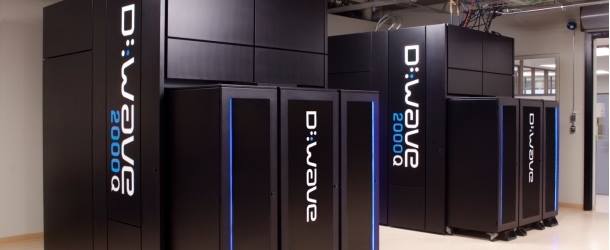D-Wave delivers industry-first hybrid solver with continuous variables to run on a quantum computer

D-Wave Systems Inc. – a global leader in quantum computing software, services, and systems, and the only quantum computing company building both annealing and gate model quantum computers – today announced an update to its Constrained Quadratic Model (CQM) hybrid solver in the Leap™ quantum cloud service. This update enables organizations, for the first time, to leverage the power of quantum computation to run constrained quadratic optimization problems with continuous variables.
Because of this, the CQM solver allows quantum developers to better represent constrained problems – such as production capacity, available funds, and asset tracking – by using continuous variables, unlocking a new class of problems and further accelerating commercialization of quantum applications. For example, with continuous variables, developers can determine optimal vehicle routes by considering capacity, travel/wait times and distances; pharmaceutical companies can more deeply analyze patient outcomes of drug trials by reviewing trial duration, time-to-patient outcomes and number of iterations; and energy operators can more effectively deliver power to customers through models that address generator output, fuel consumption and emission, and storage levels.
“D-Wave’s new CQM hybrid solver introduces an exciting new method for tackling complex problems in an unconventional way,” said Rami Musa, director of supply chain modeling and analytics at Johnson & Johnson. “By adding support for continuous variables, D-Wave is expanding the utility of its quantum hybrid solver, and the early results we’ve seen are impressive. We believe our work with D-Wave is helping our business stay ahead of the curve and plays an important role in our quantum strategy.”
The CQM solver was first made available in October 2021. It incorporates problem constraints, allowing users to benefit from a simplified expression of their constrained problems, significantly expanding the size and complexity of problems customers can solve with constraints to find the best answers to complex business problems.
Benefits of the addition of continuous variables to the CQM solver include:
- Industry First: For the first time ever, users can leverage the power of quantum computation to run constrained quadratic optimization problems that are defined on both discrete and continuous variables, expanding the scope of quantum solutions into the Mixed Integer Programming (MIP) space. This capability further broadens the optimization problems D-Wave’s platform can solve, expanding use cases and business impact.
- Demonstrated Business Value: Available in the Leap™ quantum cloud service, enhancements to the Constrained Quadratic Model (CQM) hybrid solver enable organizations to find higher-quality solutions to their most complex business problems. This creates real business value, as models using continuous variables can avoid the up to 50% per variable overhead of “fragmentation waste” created previously when continuous variables had to be rounded to integers.
- Convenience & Time Savings: Direct representation of continuous variables is a more efficient approach in terms of human time spent in reformulating and tuning problems to reduce waste due to fragmentation.
- Cross-Industry Impact: The new CQM solver further expands the commercial value of quantum computing applications across numerous industries. These include: 2D and 3D bin packing such as pallet, aircraft and truck loading; inventory management, and job shop scheduling in manufacturing and logistics; portfolio optimization in financial services; and drug trial optimization in pharmaceuticals.
“The introduction of continuous variables in D-Wave’s CQM hybrid solver service enables our customers to immediately begin unlocking and deriving business value on even more complex optimization use cases by using quantum hybrid applications,” said Murray Thom, vice president of product management at D-Wave. “Our customers are solving the increasingly-complex challenges facing organizations in our fast-paced, ever-changing world – and we are driven by our belief that quantum computing will play a central role in unlocking these solutions. By providing, for the first time, the ability to run continuous variables on quantum computers, we’re taking an exciting step in the evolution of this innovative technology, marking yet another product and commercial milestone that increases the value of quantum computing to our Global 2000 customer base.”
Sandra K. Helsel, Ph.D. has been researching and reporting on frontier technologies since 1990. She has her Ph.D. from the University of Arizona.
























